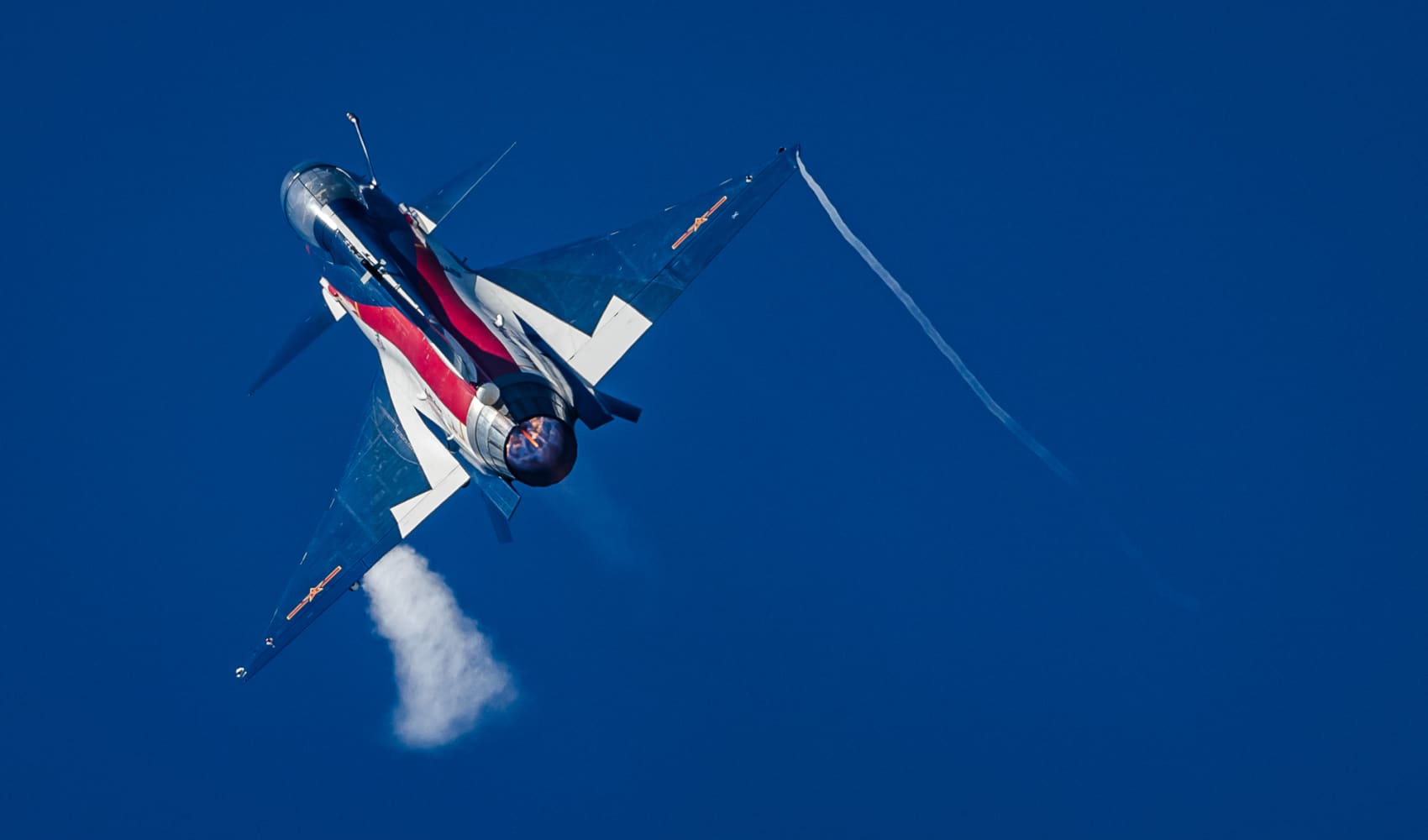India Pakistan Conflict: Missile Strikes Trigger War Fears?
India-Pakistan Conflict: Missiles Fly, War Looms?
Introduction: A Spark Ignites?
Imagine a simmering pot, threatening to boil over. That's the India-Pakistan relationship in a nutshell. And early Wednesday, it seems the heat was turned up significantly. India fired missiles into Pakistani territory, claiming it was retaliation for a recent attack on Indian tourists. Pakistan, understandably, responded with fury, calling it an “act of war.” Are we on the brink of something bigger? Let's delve into the details.
The Missile Strikes: Retaliation or Aggression?
According to India’s Defense Ministry, the strikes targeted at least nine sites allegedly used for planning terrorist attacks against India. These strikes resulted in the tragic loss of 26 lives and left 46 others injured. Was this a justified response to a prior act of violence, or an overreaction that could escalate the conflict?
Target Locations: Where Did the Missiles Land?
Pakistan's military reports that the missiles struck six locations in Pakistan-administered Kashmir and the eastern Punjab province. These are highly sensitive regions, already prone to instability. Did India intentionally choose these locations to send a stronger message?
Pakistan's Response: An Act of War
Pakistan's declaration of the missile strikes as an "act of war" is a serious escalation of rhetoric. This phrase carries significant weight in international relations and suggests Pakistan is considering its options, which could include military retaliation. What steps will Pakistan take to respond to this perceived aggression?
Fighter Jets and Firefights: A Tense Standoff
The situation became even more complex with Pakistan's claim that it shot down several Indian fighter jets. According to reports, three planes crashed in India-controlled territory, leading to a heavy exchange of fire between the two sides. Are these claims accurate, and if so, what does it signify for the balance of power between the two nations?
Claims and Counterclaims: Separating Fact from Fiction
In times of conflict, it's crucial to discern the truth amidst the chaos of claims and counterclaims. Both sides are presenting different narratives. How can we determine what really happened and who is telling the whole story?
The April Attack: A Catalyst for Conflict
The April attack on Indian Hindu tourists in India-controlled Kashmir, where gunmen killed 26 people, appears to be the immediate trigger for India's actions. The brutality of this attack, especially the reported killing of men in front of their wives, likely fueled outrage and a desire for revenge within India. Was this attack a deliberate attempt to provoke a response from India?
Eyewitness Accounts: The Horrors of the Attack
Reports suggest that the gunmen specifically targeted Hindu tourists, highlighting the communal tensions underlying the conflict. Understanding the experiences of the victims and witnesses is crucial to comprehending the depth of the anger and pain driving the current crisis.
Nuclear-Armed Neighbors: A Dangerous Game
The fact that both India and Pakistan possess nuclear weapons makes this conflict particularly dangerous. The potential for escalation to nuclear war, however unlikely, is a constant shadow looming over the region. How can the international community ensure that the situation doesn't spiral out of control?
The Threat of Escalation: Could This Lead to War?
The current situation is undoubtedly precarious. The exchange of fire, the accusations of aggression, and the history of conflict between India and Pakistan all contribute to the risk of a full-scale war. What are the chances of de-escalation, and what factors could trigger further escalation?
International Reactions: Who's Saying What?
The international community's response to the crisis is critical. Major powers like the United States, China, and the European Union will likely urge restraint and call for dialogue. However, their ability to influence the situation may be limited, given the deep-seated animosity between India and Pakistan. What role can international organizations play in mediating the conflict?
The Role of Diplomacy: Can Dialogue Prevent War?
Diplomatic efforts are essential to de-escalate the situation and prevent further violence. Can India and Pakistan be persuaded to return to the negotiating table, or has the latest round of attacks shattered any hope of a peaceful resolution?
The Kashmir Dispute: A Historical Wound
The conflict between India and Pakistan is deeply rooted in the unresolved dispute over Kashmir, a region claimed by both countries. This territorial dispute has been a source of tension and violence for decades, and it continues to fuel the current crisis. How can the Kashmir issue be addressed in a way that is acceptable to both sides?
The Future of Kashmir: A Bleak Outlook?
The recent events further complicate the already fraught situation in Kashmir. The residents of the region are caught in the crossfire, facing violence, displacement, and uncertainty. What does the future hold for the people of Kashmir?
The Human Cost: Lives Lost, Families Shattered
Behind the headlines and political rhetoric are real people whose lives are being torn apart by the conflict. The loss of life, the injuries sustained, and the displacement of families are the tragic consequences of the ongoing violence. How can humanitarian aid be provided to those affected by the crisis?
The Media's Role: Reporting the Truth?
The media plays a crucial role in shaping public opinion and influencing the course of events. However, biased reporting and the spread of misinformation can exacerbate tensions and make it harder to find a peaceful resolution. It's imperative that journalists report accurately and responsibly, avoiding inflammatory language and focusing on verified facts.
Conclusion: Navigating a Dangerous Path
The situation between India and Pakistan is incredibly volatile. The missile strikes, the claims of downed fighter jets, and the declaration of an "act of war" all point to a dangerous escalation of the conflict. The potential for a full-scale war, with devastating consequences, is a real and present danger. Diplomatic efforts are urgently needed to de-escalate the situation and prevent further bloodshed. The world watches with bated breath, hoping that cooler heads will prevail and a path to peace can be found.
Frequently Asked Questions
Here are some frequently asked questions about the recent events:
-
What exactly triggered India's missile strikes?
India claims the strikes were in retaliation for the April attack on Indian tourists in Kashmir, which resulted in the death of 26 people. They allege the targeted sites were used for planning terrorist attacks against India.
-
Why does Pakistan consider the missile strikes an "act of war"?
The term "act of war" signifies a serious escalation and a violation of Pakistan's sovereignty. It implies that Pakistan has the right to respond militarily, although it's not obligated to do so.
-
Are there any independent sources verifying the claims of downed fighter jets?
As of now, there are conflicting reports and limited independent verification of Pakistan's claim of shooting down Indian fighter jets. It's crucial to rely on trusted news sources and wait for further confirmation.
-
What is the international community doing to address the situation?
Major powers and international organizations are likely engaging in diplomatic efforts, urging restraint and calling for dialogue between India and Pakistan. They may also offer mediation to help resolve the conflict.
-
What are the long-term prospects for peace between India and Pakistan?
The long-term prospects for peace remain uncertain, given the deep-seated historical tensions and the unresolved dispute over Kashmir. However, dialogue and confidence-building measures are essential to improving relations and preventing future conflicts.

